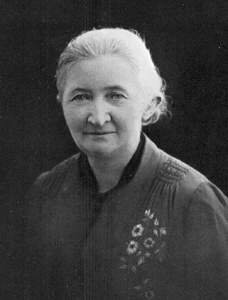Biography of Karen Jeppe “Mother of Armenians” published in Houshamadyan
Portrait of Danish Humanitarian Karen Jeppe
On August 10, 2020, I co-authored an article about Danish humanitarian Karen Jeppe with Danish historian Matthias Bjørnlund on the open-source virtual Armenia project known as Houshamadyan. The 20 page article is available online along with a visual archive of over 20 maps and photographs from the League of Nations, Danish National Archives, and other libraries and private collections.
A life-time educator and humanitarian worker, Karen Jeppe was an eyewitness to the 1915 Armenian Genocide in ‘Urfa, having hid Armenians under the floorboards of her own home to save their lives. After spending a few years in Denmark recuperating from the psychological trauma of what she had witnessed , she returned to the Middle East as a League of Nations Commissioner for the Protection of Women and Girls in the Near East, which opened whole new avenues of possibilities for relief and developmental work. She was ambivalent about accepting the position, but accepted that recovering and recuperating forcibly assimilated women and children was necessary for the recovery of Armenians. She based her operations in Aleppo, Syria and in 1922 opened a large Reception Home (a.k.a. Rescue Home) at a compound by the railroad in what would later be called the Shaykh Taha district in the northern outskirts of Aleppo near the Quwayq River, a home where close to 2,000 Armenians would pass through until 1927, helped to escape by a complex network of agents, bribes, persuasion, and negotiation. The word was quickly spread throughout the region that there was an opportunity for Armenians to rejoin their community in Aleppo, which could lead to dramatic flights, and even cost the life of Jeppe’s agent in Hasakah, the Catholic Armenian merchant from ‘Urfa Vasil Sabagh. The main reason why saving Armenians after the genocide could still be a dangerous business was this: While the project was indeed sanctioned by the League of Nations, there was much local resistance against helping Armenians escape from Muslim households, and the French mandate authorities would also be hesitant to assist Jeppe’s organization in this endeavor to avoid upsetting, e.g., Bedouin tribes.
For more about Karen Jeppe’s biography and humanitarian project in Aleppo see, https://www.houshamadyan.org/mapottomanempire/vilayetaleppo/sandjak-of-aleppo/religion/missionaries.html

